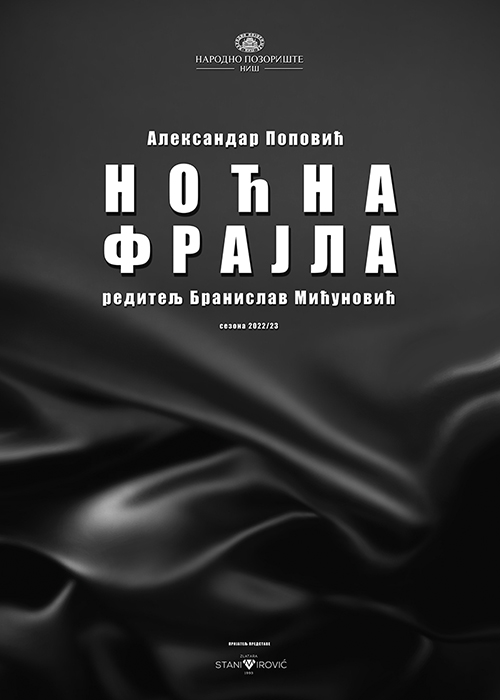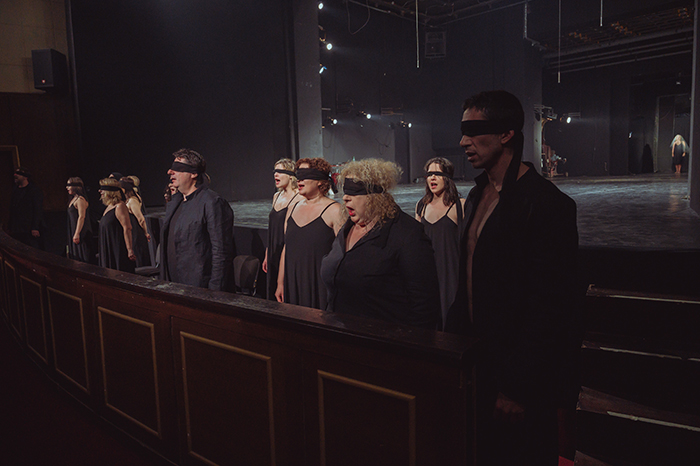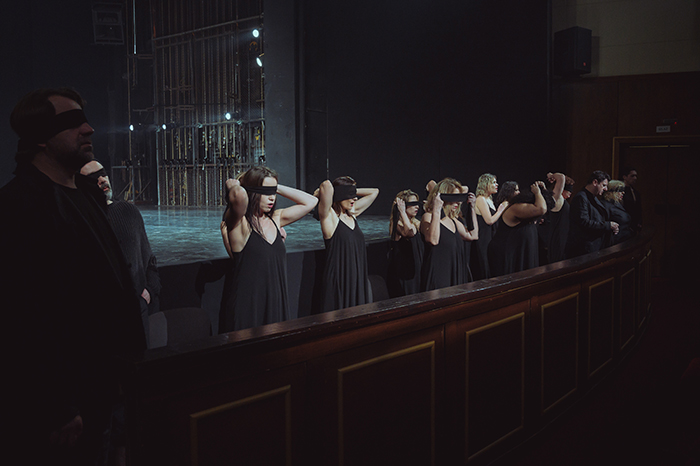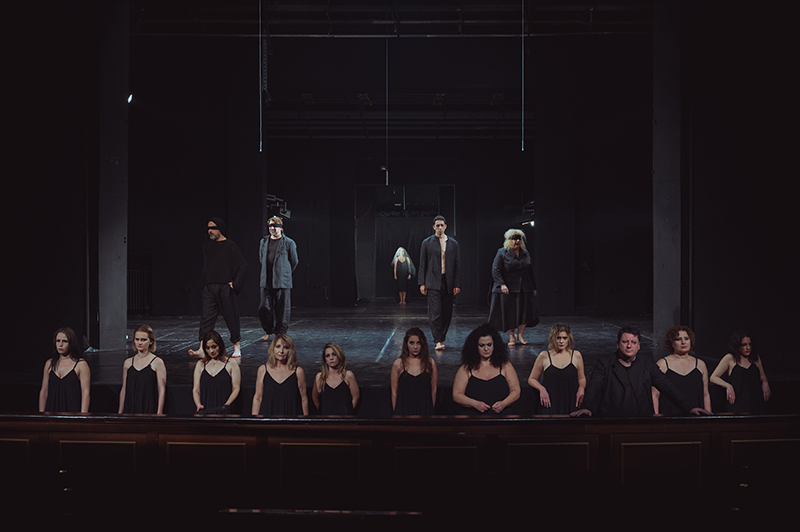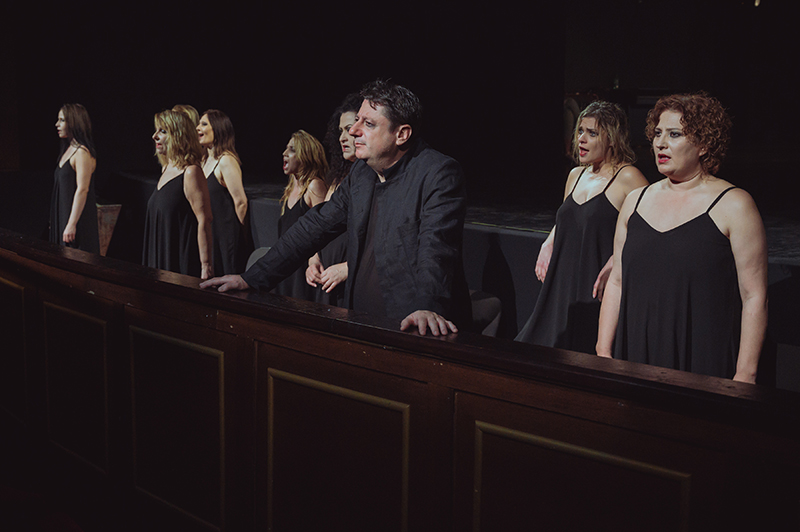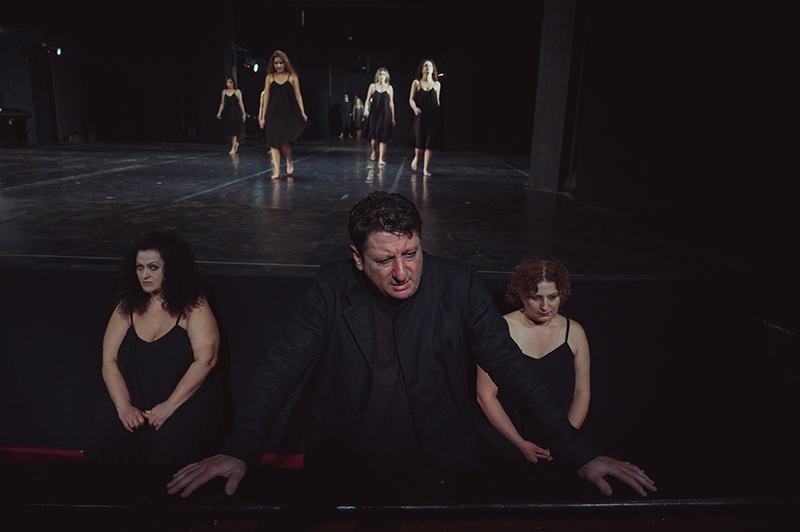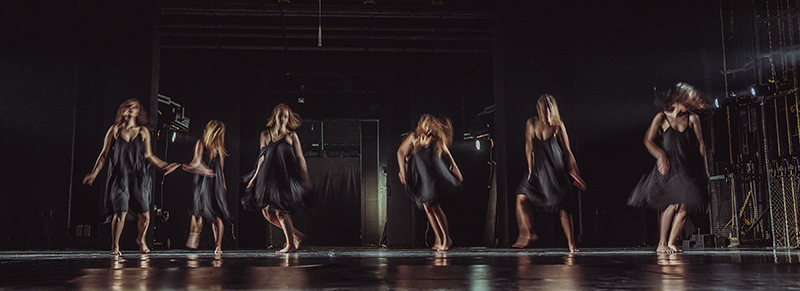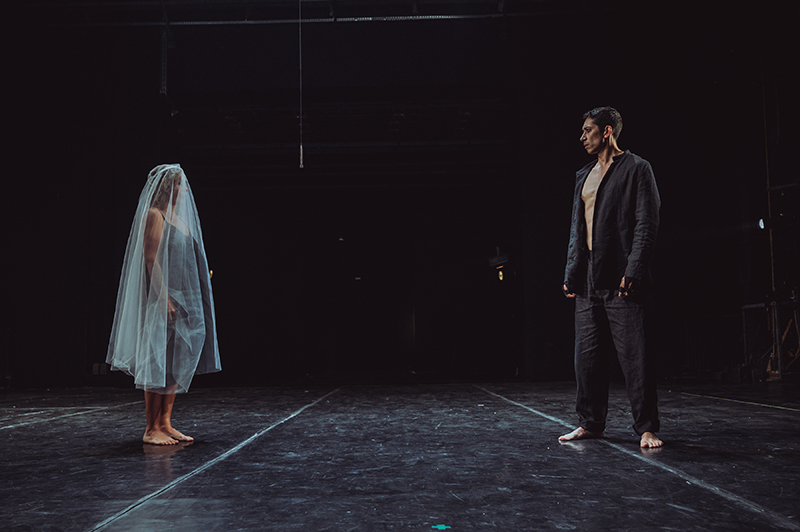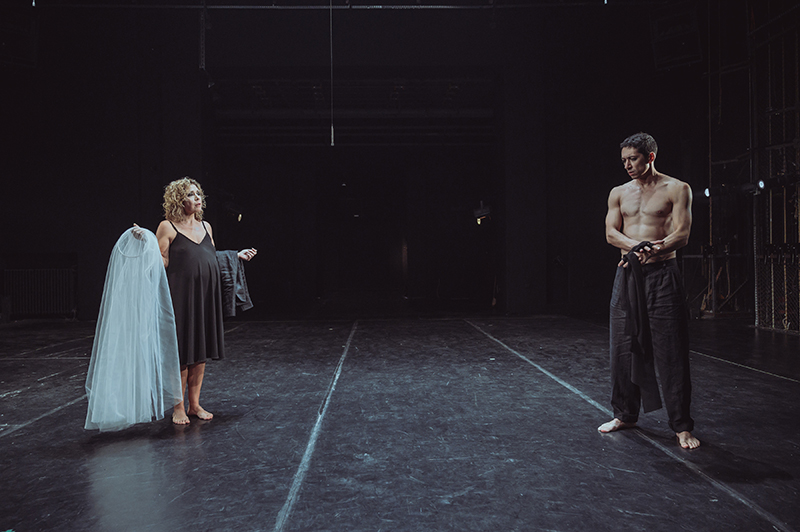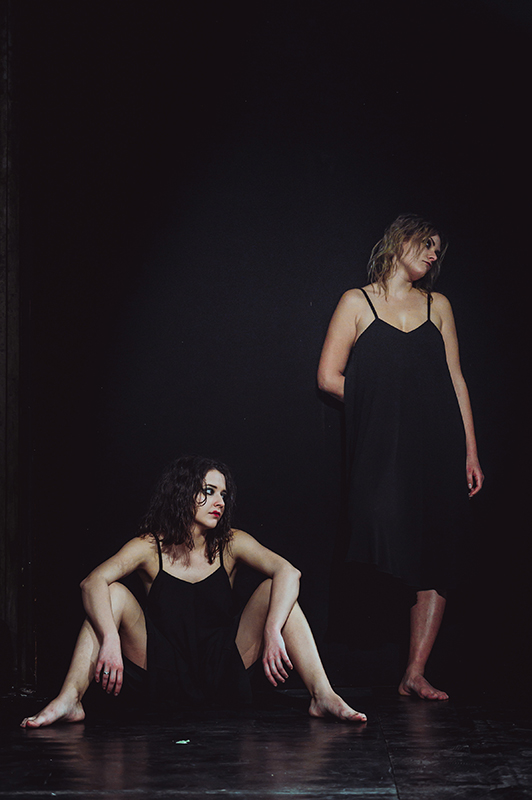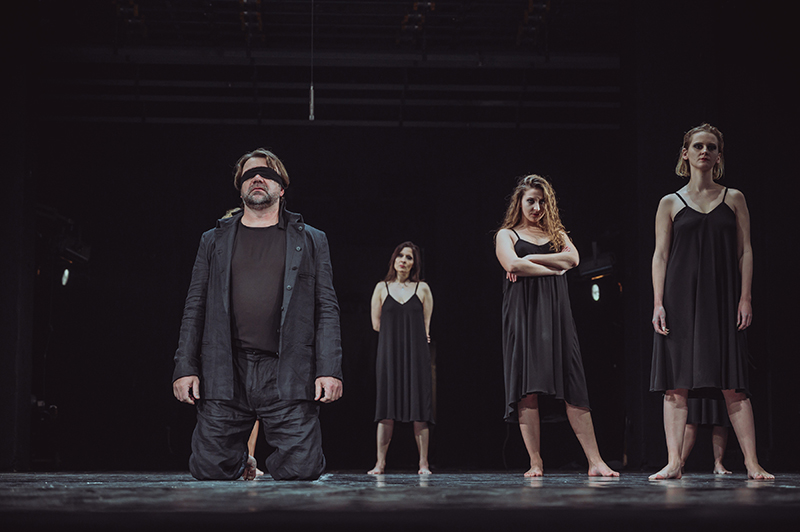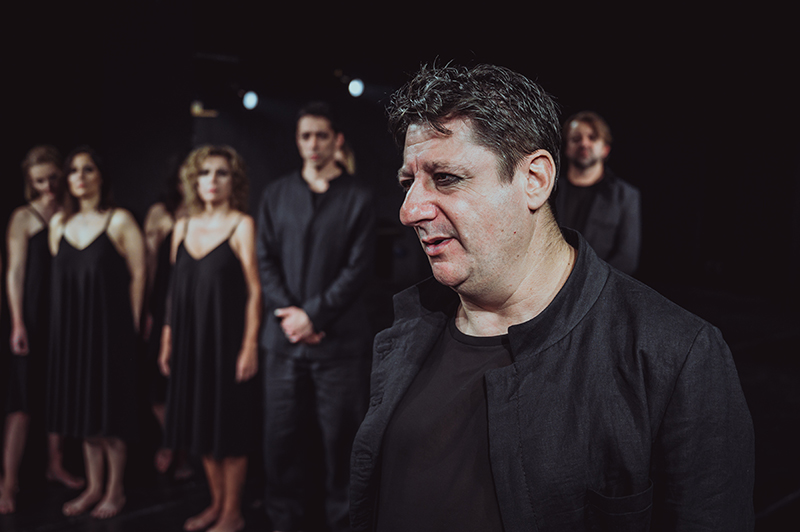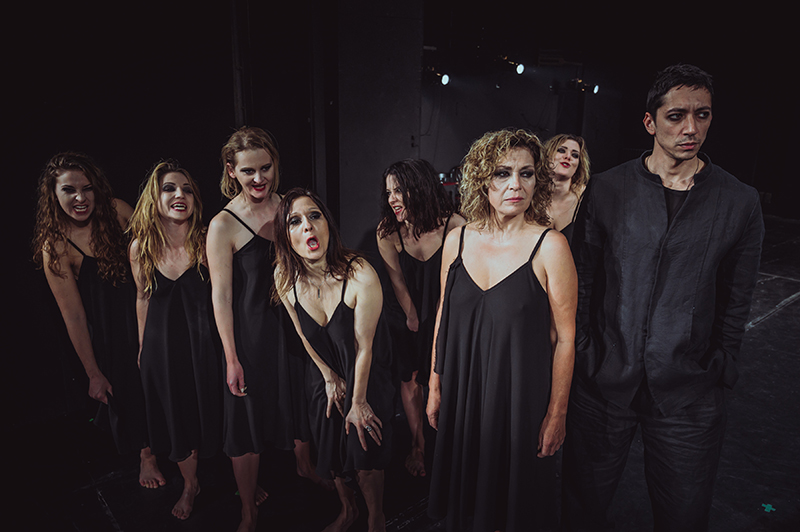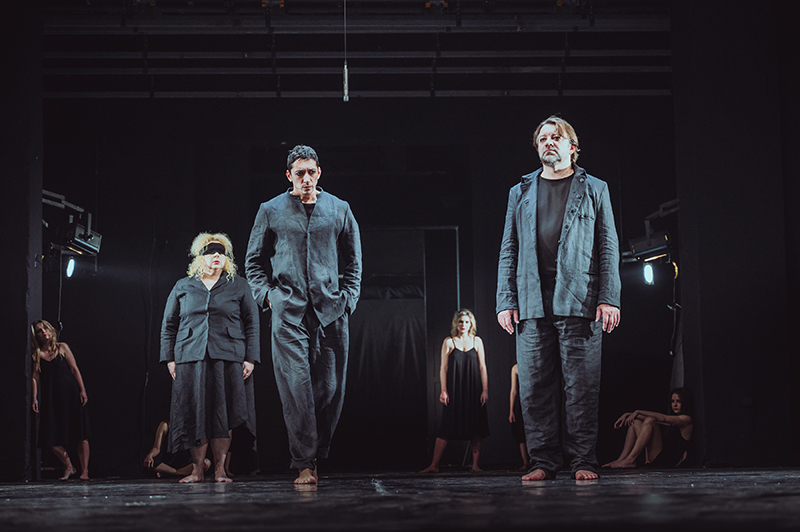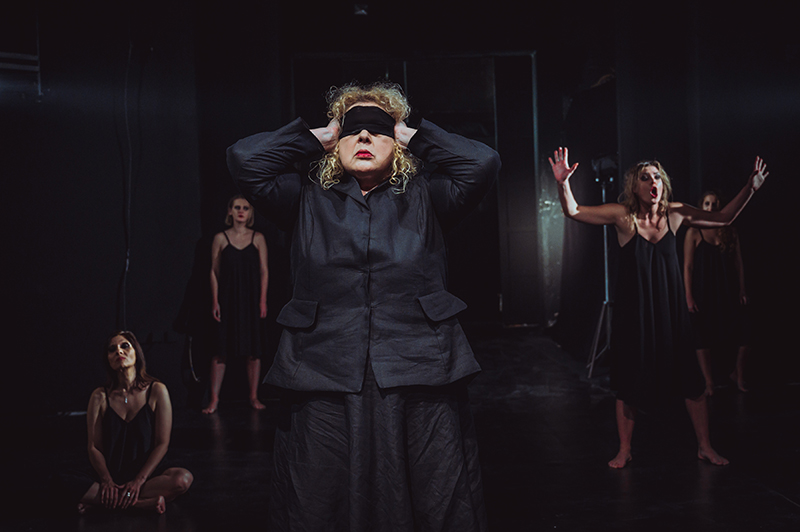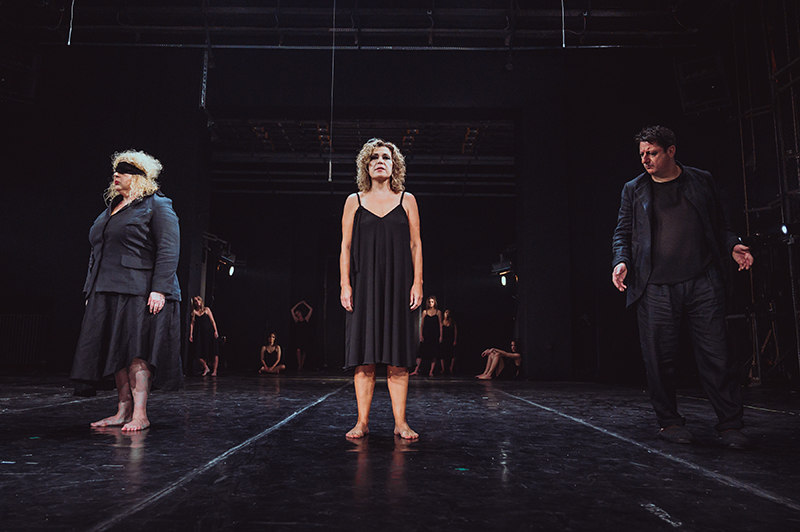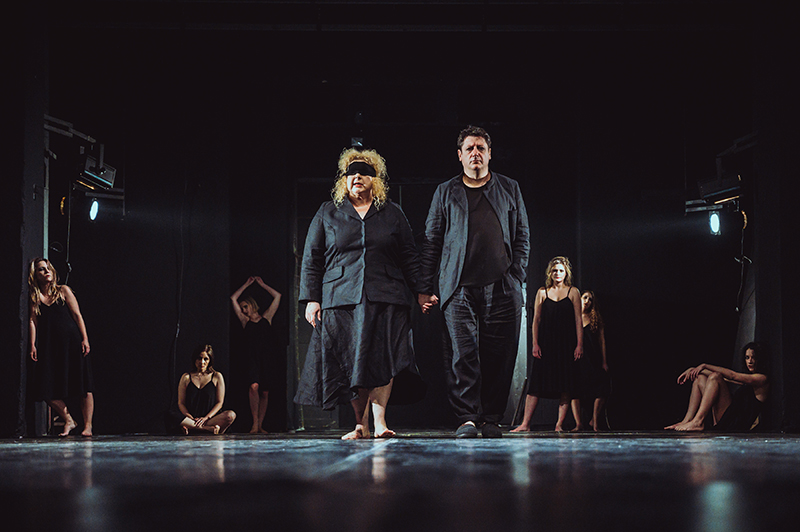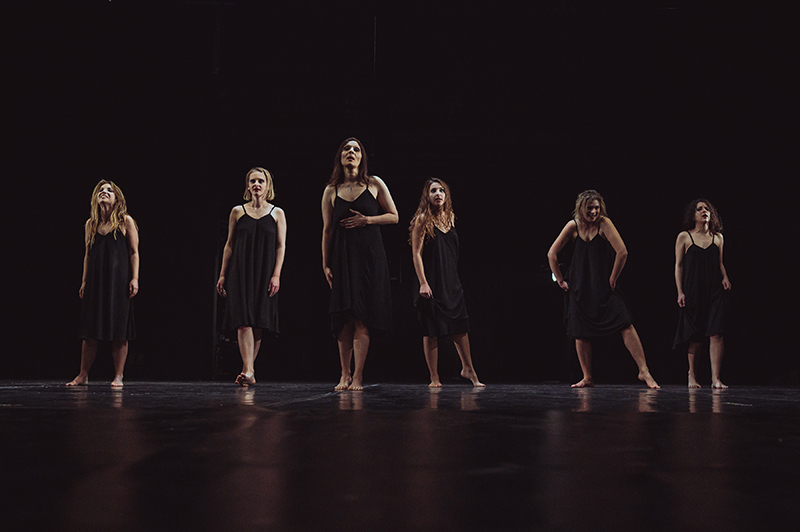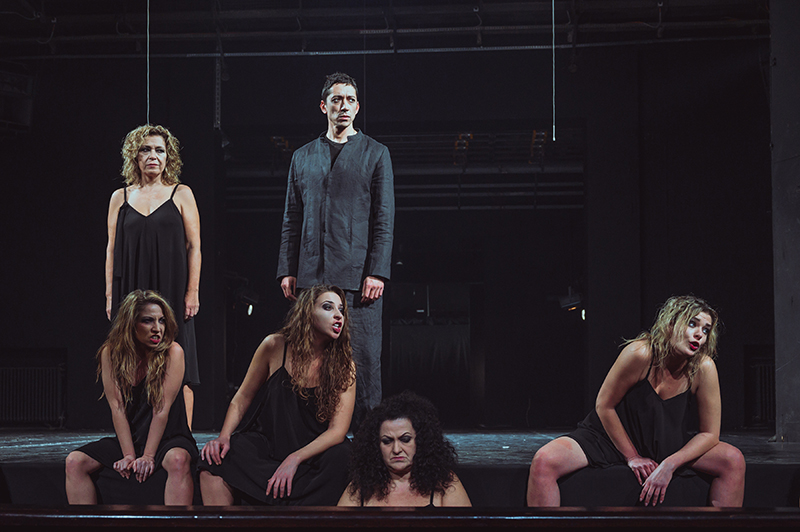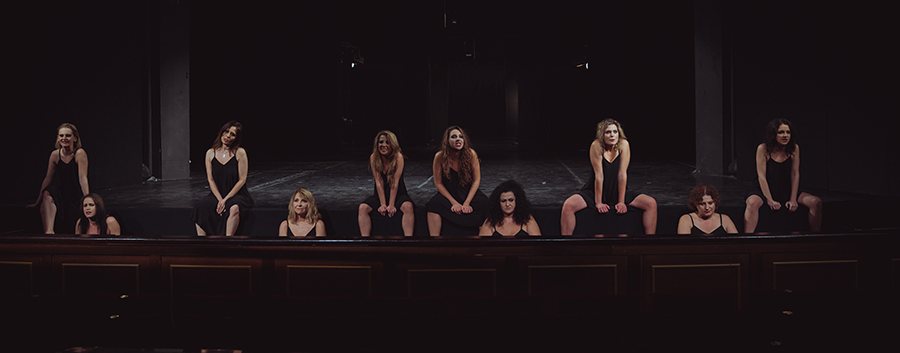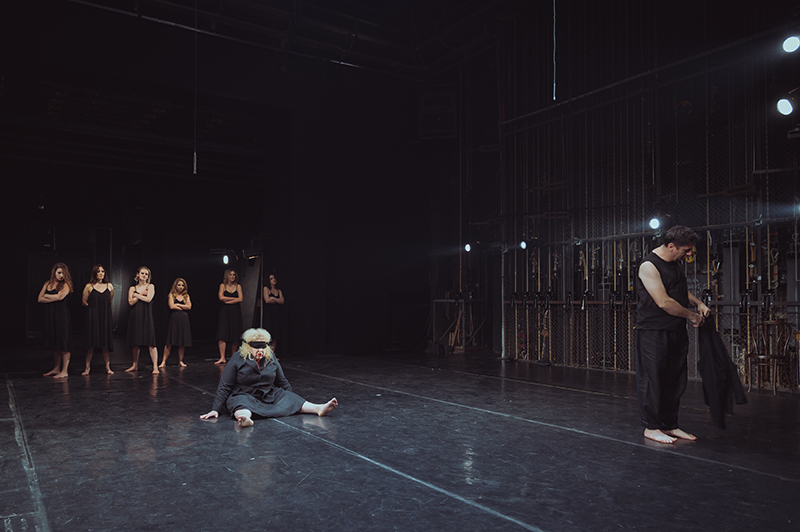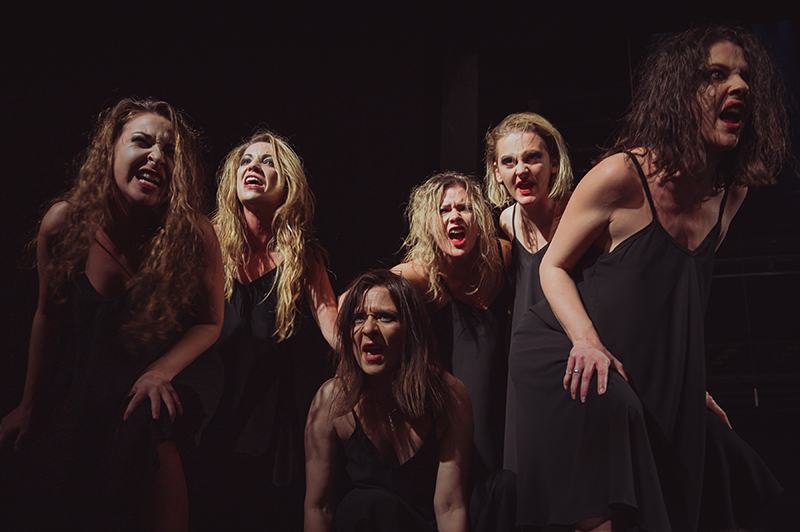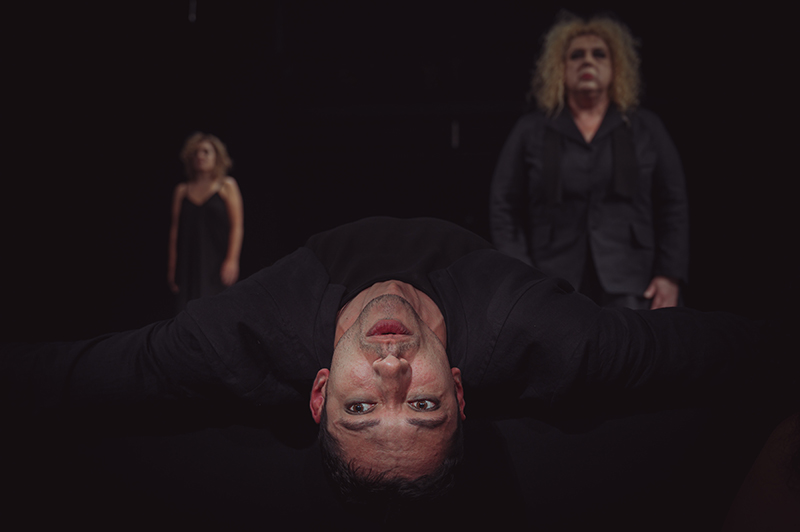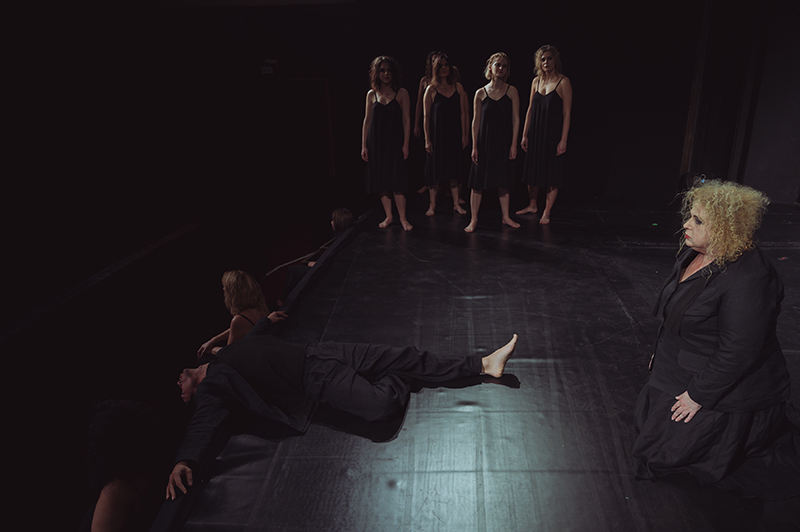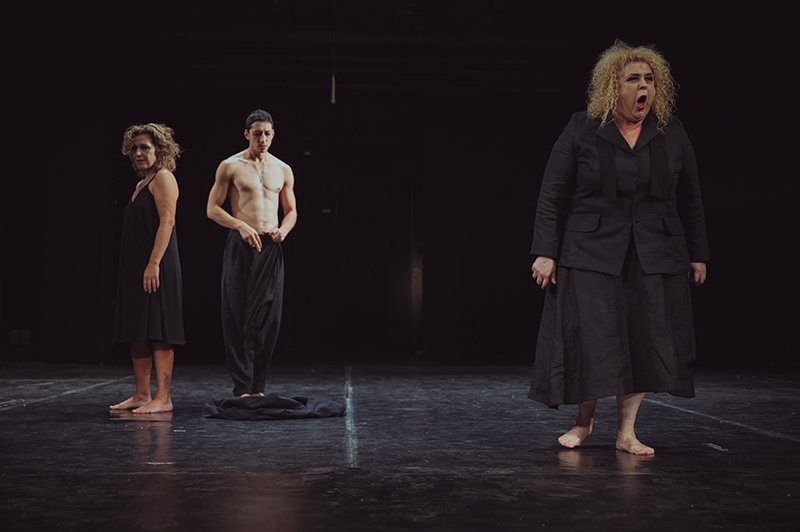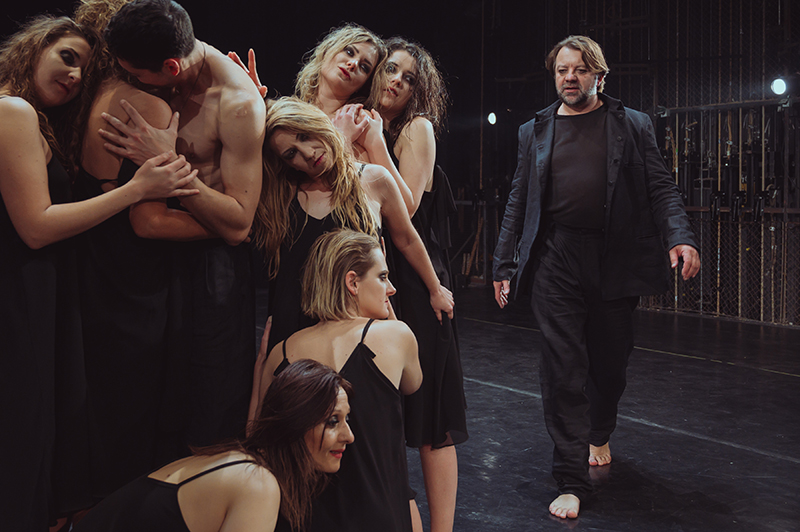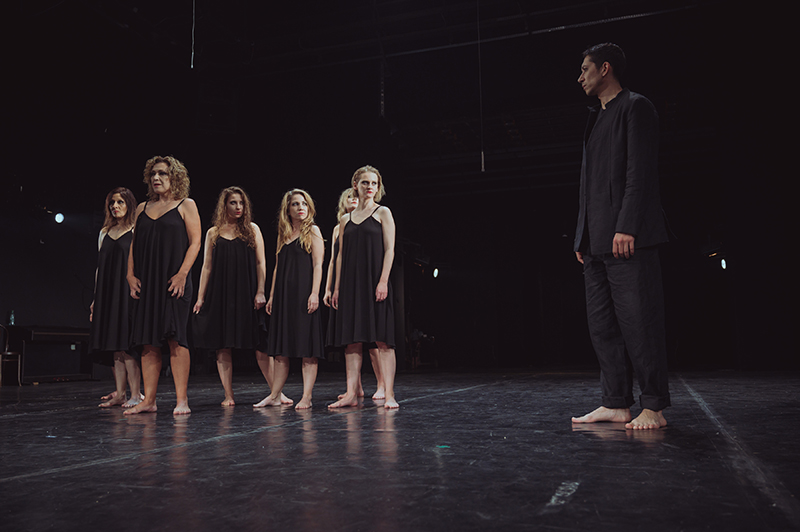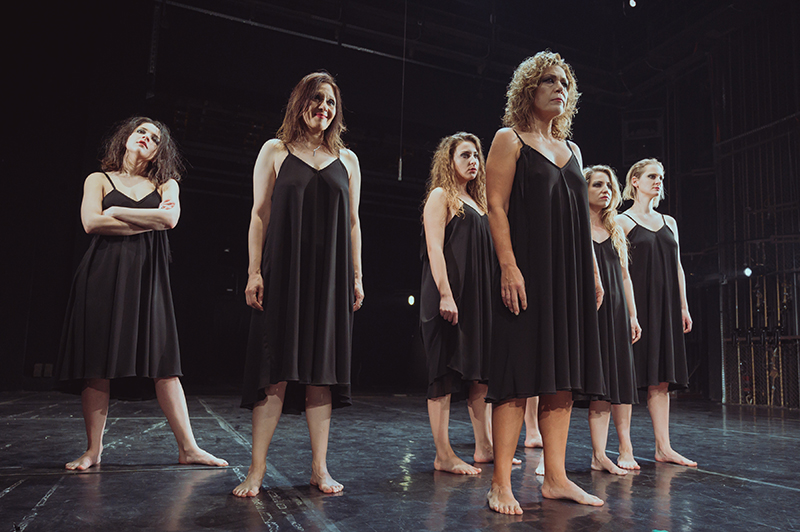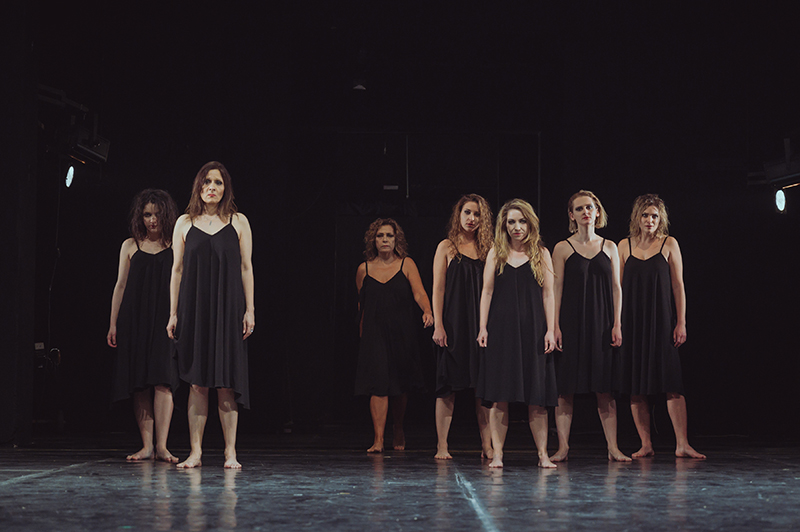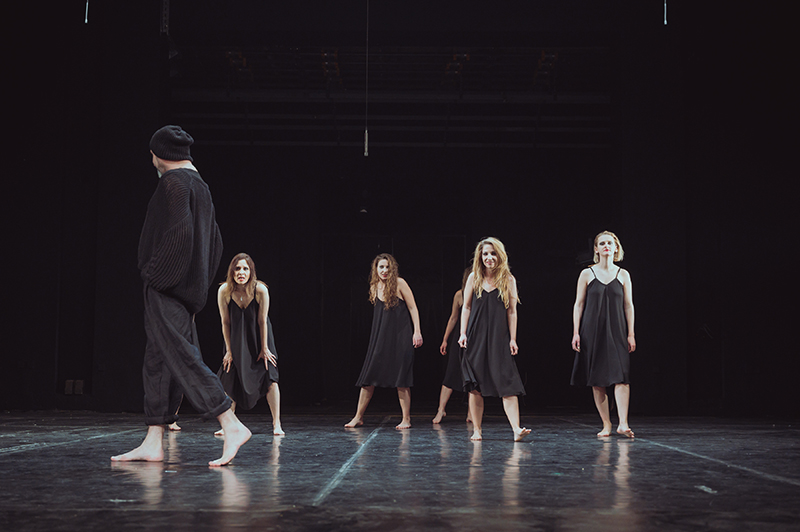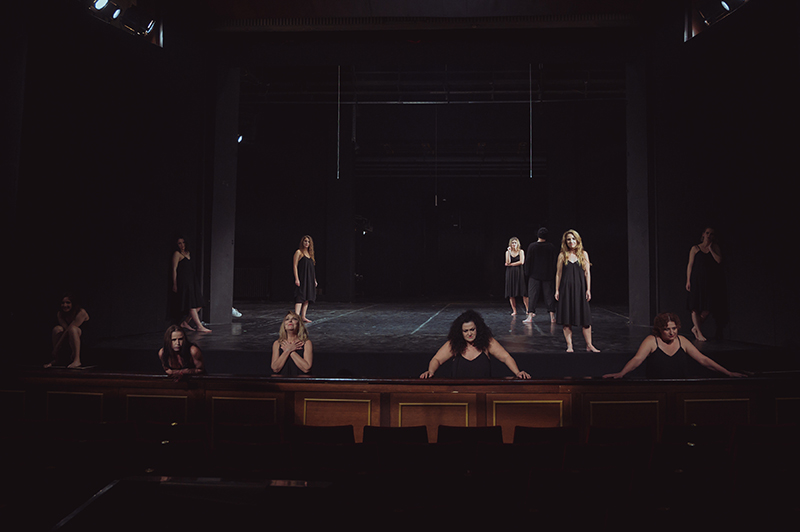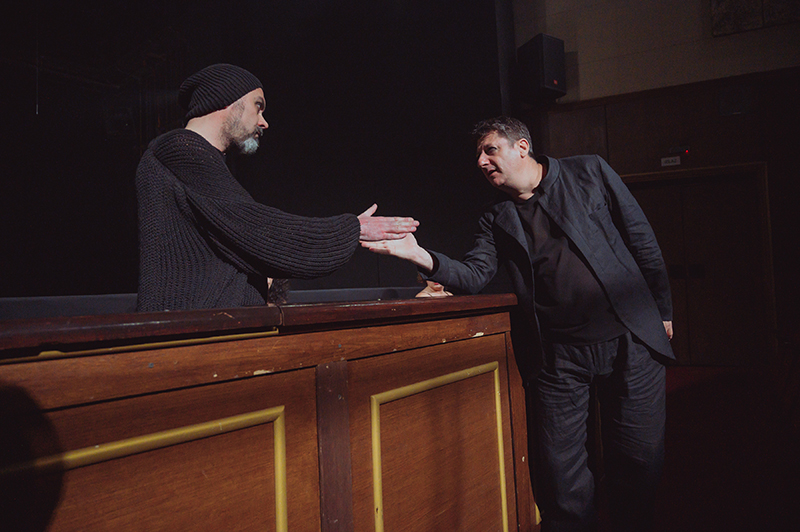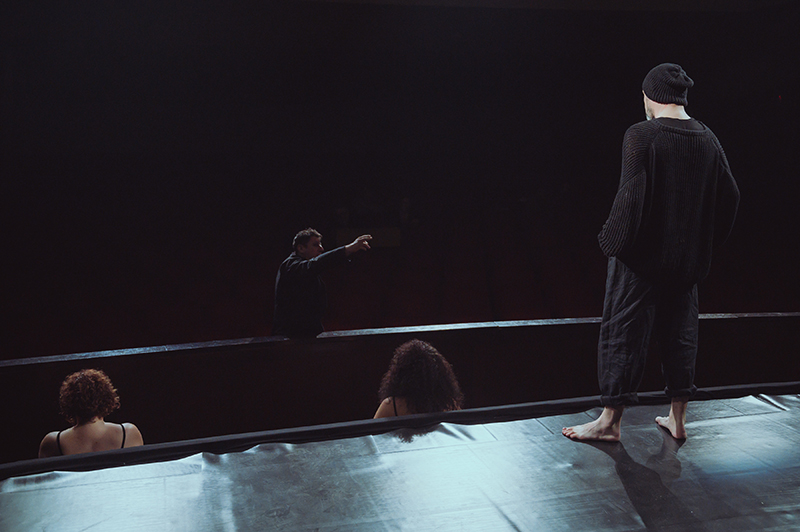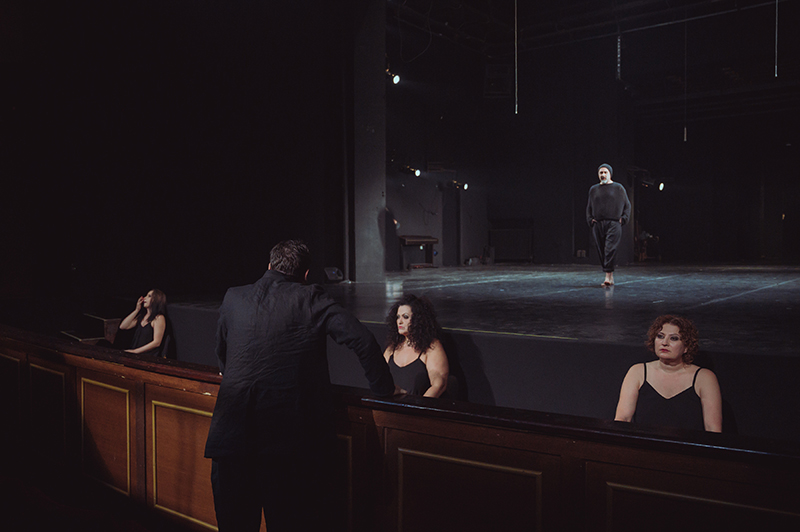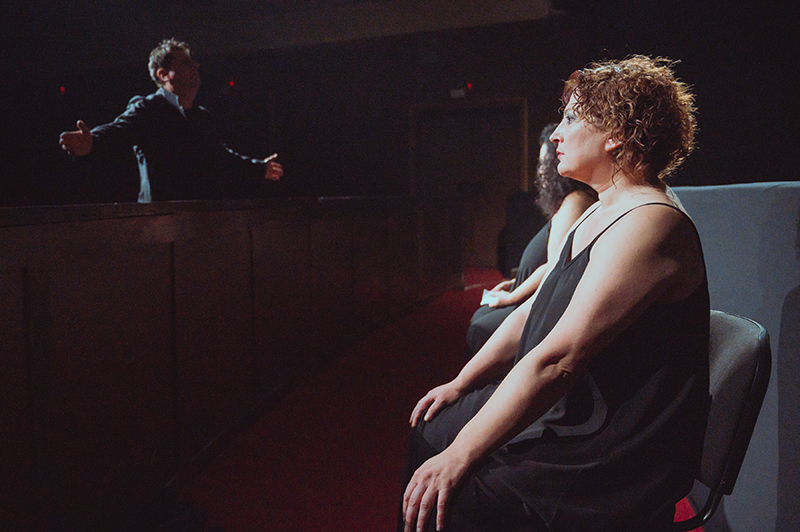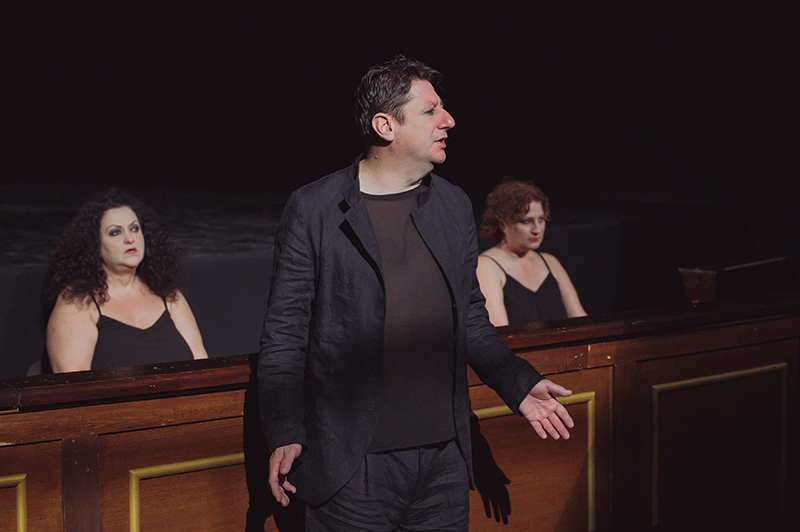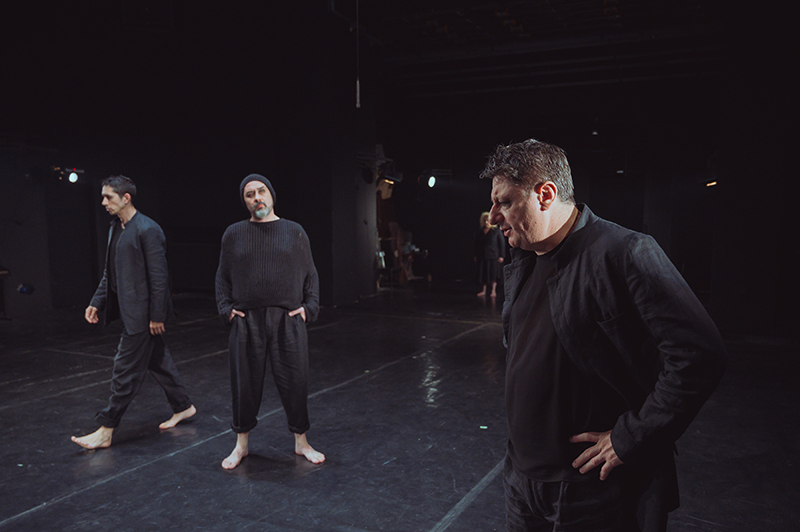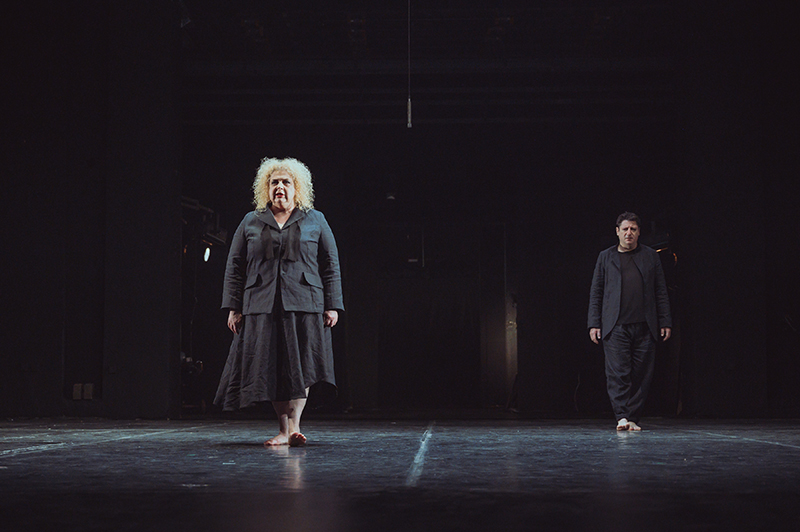
NIGHT – SCENTED STOCK
ABOUT ALEKSANDAR POPOVIĆ FROM ANOTHER ANGLE
On November 20, 1929, the father of Bora Šnajder, Djakon Avakum, Kika Bibić, Momčilo Jabučilo, Milja Bušatlija, Dragojko Almighty, Inkiostar, Velja and Agnesa, Duka Sujić, Vitomir Kambasković, Captain Vasa Vučurović, Mane Suvajc, Prilivoda, the Duke Milenko, Mirićija Grudobolna, Žarkić Dupedavac, Lina born Perekitka, Todor and Odor, Night-Scented Stock, comander Sekloć, boss Isa, Desanka with chick and Ljubinka with Amrel. Aleksandar Popović aka Žak, aka Ale, aka Žak Žaks (that’s what he called himself) got married at the age of 17, and then spent five years on Goli otok. Five months of that in solitary confinement. The rest is the history of Serbian drama and theater in the second half of the XX century.
Everything that parades in his 50 theater plays and several hundred television, film, short, long, for children and adults – screenplays, dramas, (tragi)comedies, signs, “bitter pieces” and other different canonical or subversive theatre – in incorrect but also the unbeatable record exceeds the number of all characters in total in our domestic drama and scenarios in recent history. Serbian Lope de Vega. When in the period from 1964 to 1968 he managed to reach his ten premieres, and in the meantime wrote close to 30 TV movies and series, a newspaper cartoonist drew him as an octopus at a typewriter. Analogous to the tendencies in the field of film art of that era, it can be said without hesitation that the dramatic provocation of Aleksandar Popović represented the Serbian “black wave” of domestic theater and dramatic text. Awarded by “Sterija” award seven times and removed from the repertoire as many times – by directive, of course. According to some, he represented the sublimation of Moliere and Ionesco (Ćirilov), according to others, he “localized” Beckett’s themes (Mihiz) in a way that had never been seen before, which resulted in him being proclaimed “the father of new serbian drama”. He came to his premieres mostly in a black sweater or a checkered shirt. This great hippie of Yugoslav culture didn’t just slap the spoken language and almost all theatrical and dramatic conventions, he fought with an entire paradigm, building his own world which playfully and mockingly outgrew the reality. By the abundance of motifs, by the explosive richness of the plot, by the vitality of the characters and their need for juicy and precise expression, Aleksandar Popović was our Rabelais, a representative of a belated cultural renaissance.
To this day, his scenic kaleidoscope remains an inexhaustible source of fascination, which ceaselessly provokes further questioning, reflection and imagination. The poetics of Popović’s play, eclectic in relation to the combination of Serbian literary tradition and contemporary European theater, had an undoubted influence on numerous generations of theatergoers and left an indelible mark on the overall theater-drama paradigm in our region. And then, one night, on October 9, 1996, when he returned from the performance of “Ljubinka and Desanka”, his first play, Žak laid down on the dressed ceremonially and passed away. He left behind an impressive and enigmatic work that continues to cast a shadow over everything around it, including our treacherous memory.
THROUGH THE PRISM OF THE DIRECTOR
“Night – Scented Stock” belongs to the pieces of polyphonic structure and very complex composition, but also a great pleasure for every director who perceives Popović’s theatrical discourse as a true provocation.
Starting from the premise that the originality of Popović’s text is unquestionable, and that its significance is deep and very current at the moment when this play was created, there was no dilemma to determine that the directing process will move towards revealing the deep layers of meaning in Popović’s dramatic work and that its stage simplicity be the basis of movement through his dramatic labyrinth. Quite paradoxically – which is also one of the fundamental characteristics of Popović’s theater aesthetics – the richness and fullness of the text dictated the pattern of an apparently “poor theater”, putting before the director a seemingly simple task: to release the plot of restrictions and unnecessary loadings, to lay bare the richness of Popović’s theater, to strip it of its seductive veils, to make it clear, receptive, direct and appropriate to the times in which we live.
Because there is no complicated theater instrumentation between the work of Aleksandar Popović and the viewer – scenography, scenery, props in this production – but only the lights and the actor in the costume and the endless space to play, the interpretation of the dialogue was not allowed to move in the direction of any illustrative or psychologizing. We will be all the more satisfied with our attitude towards the size and importance of Popović’s work if it will represent a clear link between the writer’s genius and our viewer’s theater sensibility through its stage objectification.
Branislav Mićunović, director
Prof. Branislav Mićunović is a theater director, a long-term professor of acting at the Faculty of Dramatic Arts in Belgrade and at the Faculty of Dramatic Arts in Cetinje.
He is a member of several academies of sciences and arts and an honorary Ph.D of several universities.
Prof. Mićunović mainly directed the works of contemporary authors: Aleksandar Popović, Velimir Lukić, Ljubomir Simović, Veljko Radović, Jordan Plevneš, Goran Stefanovski, Ivo Brešan, Gordan Mihić, Borislav Pekić, Mirko Kovač… but also world classics – Njegoš, Ibsen, Chekhov – in the Montenegrin National Theater in Podgorica, the Yugoslav Drama Theater and the Belgrade Drama Theater in Belgrade; The Serbian National Theater in Novi Sad, the Croatian National Theater in Rijeka, the National Theater in Tuzla, the National Theater in Niš, the Zvezdara Theater in Belgrade, the Bar Chronicle festival, the Student Cultural Center in Belgrade.
His shows were performed in the selections of Yugoslav and international festivals – Festival MESS, Sarajevo; Ex Ponto, Ljubljana; Sterija’s Theater, Novi Sad; Festival of festivals, Zemun; Joakim Vujić Encounters; Comedy Days, Jagodina; City Theater Budva; Ohrid Summer; Festival Without Translation, Užice; Gaveline Evenings, Zagreb; Sarajevo Winter; Festival of Small Scenes, Strumica; Bar Chronicle; Festival Iberoamericano del Teatro, Bogotá; International Istanbul Theater Festival; International Festival Balkan Theater Space, Saint Petersburg.
In 1997, he was elected director of the renovated Montenegrin National Theater. On May 25 of the same year, the new building of the Montenegrin National Theater was opened under his direction of Njegoš’s “the Mountain Wreath”.
He was awarded the most important professional and social awards: Steria’s award for directing; Grand Prix for directing at the Festival of Festivals; Award for directing “Joakim Vujić” (1983 and 1993); Award for directing “Jovan Putnik”; Grand Prize of the Montenegrin National Theatre; Award for directing at the Festival of the Balkan Cultural Space “Theatre at the Crossroads”; “Veljko Mandić” award for contribution to theater culture in Montenegro; Awards of the Mihaj Eminescu International Academy for theater creation; Order of Danica Hrvatska with the image of Marko Marulić, for special achievements in culture. The University of Belgrade, the University of Novi Sad and the Chamber of Commerce of Serbia awarded him the “Captain Miša Anastasijević” Charter for cross-border cooperation and the extended hand of friendship. He is also the winner of the “Golden Apple” International Award in the Republic of Macedonia (2008).
He is the winner of: the December award of the capital city of Podgorica; Awards of the city of Nikšić – September 18; Charter “St. Petar Cetinjski” – Montenegrin capital Cetinje; Medals of St. Tripuna of the Diocese of Kotor, for promoting ecumenical dialogue. He is the winner of the highest national recognition of Montenegro – the Thirteenth of July Award.
Branislav Mićunović was elected Minister of Culture of Montenegro in three mandates: 2008, 2010 and 2012. From 2014 to 2019 he was the plenipotentiary and extraordinary ambassador of Montenegro in the Republic of Serbia.
In the National Theater of Niš, he successfully directed the following plays: “Koštana” by Bora Stanković, “Savior” by Borislav Pekić, “Scolding of the People in Two Parts” by Slobodan Selenić and “Yugoslav Antithesis” by Jordan Plevneš.
DRAMATIC FORM OF “NIGHT – SCENTED STOCK”
Even after almost six decades since the first appearance on the domestic stage, the theatrical and dramatic manuscript of Aleksandar Popović marks a concise sublimation of sharp, one would say epochal contradictions presented by a series of deep social and individual conflicts. Created in the mature phase of the author’s dramatic engagement, “Night – Scented Stock” is one of Aleksandar Popović’s most reflective pieces, which, through the seductive orchestration of dramatic, epic, lyrical and philosophical discourse, defines the stage play in the direction of a kind of “happening”.
This dramatic dystopia, devoid of any concrete or recognizable historical context, represents the final act of a tragicomic story in which birth brothers, but also different generations within the same family, find themselves on sharply opposing sides, deepening any possible antagonism. In the community, affected by moral erosion, the world of women enters as a life-giving principle and pledge of prudence, determined to finally restore order and different relationships in the chaos of reversed values. Emphasizing the principle of reversibility, this stage construct, devoid of numerous diegetic traps – so characteristic of Popović’s literary-dramatic procedure – clearly and undisguisedly defines the space of the play towards the space of the viewer, highlighting the complementarity, but also the reversibility of the world of the audience and the world of Popović’s dramatic characters. On the series of excursus, in the form of numerous sentences, lapidary wisdom, but also sonorous chants, is superimposed a threatening prospect in relation to the world of the viewer. The persistent thematization of the audience and the extension of the dramatic space in all directions emphasizes the symbolic closeness of the world of the audience to the world of “Night – Scented Stock”, which is why the characters in the play often, implicitly as well as directly, address the viewer as their active interlocutor, if not an accomplice. Popović’s dramatis personae in this piece also speak from the other world, so that with their dark experience, they would not prevent the further decay of this one of ours – the present and here.
There is no doubt that with this piece, Popović foreshadowed the wider social and moral devastation that will follow shortly after its premiere (1990) and last until today, when this piece once again admonishes and warns. The dramaturgical procedure in the work on the play had the task of bringing Popović’s grayness demonstrated in “Night – Scented Stock” to symbolic obviousness and a more concise dialogic form, and to use intertextual interventions to indicate wider motive, thematic and poetic spaces within the dramatic corpus of one of our most prominent theater authors of the 20th century.
Dejan Petković, Ph.D
Dejan Petković, Ph.D graduated from the Faculty of Philosophy of the University of Niš. At his home faculty, he published the study “Comediography of Aleksandar Popović and the French Dramatic Avant-Garde” (1998). In addition to theoretical work, he is engaged in dramatic and screenwriting work. He is the author of the screenplays for the feature-documentary films “Battle of Čegar” (2006) and “Black Dawn” (2007). He is the creator of the drama script for the state commemoration of the 200th anniversary of the Battle of Čegar (director: Ištvan Bičkej, National Theater Niš, 2009). He won the award of the Niš Art Foundation for the drama “Via Doloris” (2007), the award for the best dramatic text at the 5th Joakim Fest in the play “Chosen and Destroyed” (directed by Kokan Mladenović, National Theater of Niš, 2008), as well as the Radio Belgrade award for the radio drama “Miracle on the Bosphorus” (director: Miloš Jagodić, 2013). He was awarded the charter for his outstanding contribution to the first Theater Festival of the Balkan cultural space “Theatre at the Crossroads” (2019). He defended his doctoral dissertation “Epic Communication Structures in the Plays of Aleksandar Popović” at the Faculty of Dramatic Arts in Belgrade. In 2021, Sterija’s Theater published his study “Post-Drama in the Poetics of Aleksandar Popović” in its “Synthesis” edition for theatrics.

Cast
SLAVOLJUB, tortured - Aleksandar Mihailović
DRAGINJA, his - Jasminka Hodžić
ALEKSA, theirs - Miloš Cvetković
NIGHT - SCENTED STOCK, everyone's - Sanja Krstović
PAN KRSMAN, whose ever - Aleksandar Marinković
MRATA, nobody's - Marjan Todorović
BARBARA, orphan - Maja Vukojević Cvetković
ASPIDA, orphan - Jovana Krstić
CVETA, orphan - Nađa Nedović Tekinder
MARELA, orphan - Maja Dejanović
ANICA, orphan - Natalija Jović
KATICA, orphan - Jovana Golubović
STOJANA, orphan - Vesna Stanković
DAFINA, orphan - Ivana Nedović
NASTA, orphan - Dragana Jovanović
ZLATICA, orphan - Bratislava Milić
Technical Crew
Stage manager- Dobrila Marjanović
Sound design and video works - Slobodan Ilić
Lighting design – Dejan Cvetković and Marko Đorđević
Prompter - Jana Savić
Technical director: Dejan Mitić
Stage master: Slaviša Filipović
Stage dressers: Marin Rajić and Miodrag Đorđević
Props: Dragan Nikolić
Wardrobe: Dušica Mladenović and Katarina Pavlović
Makeup artists, hairdressers: Ljiljana Rašić, Marija Cvetanović, Ivana Lazarević
Tailoring works: Marina Stevanović and Vladimir Pekić
Workshop: Aleksandar Rajić
Procurement: Zoran Denčić
Driver: Nebojsa Šarčević

 српски
српски English
English
